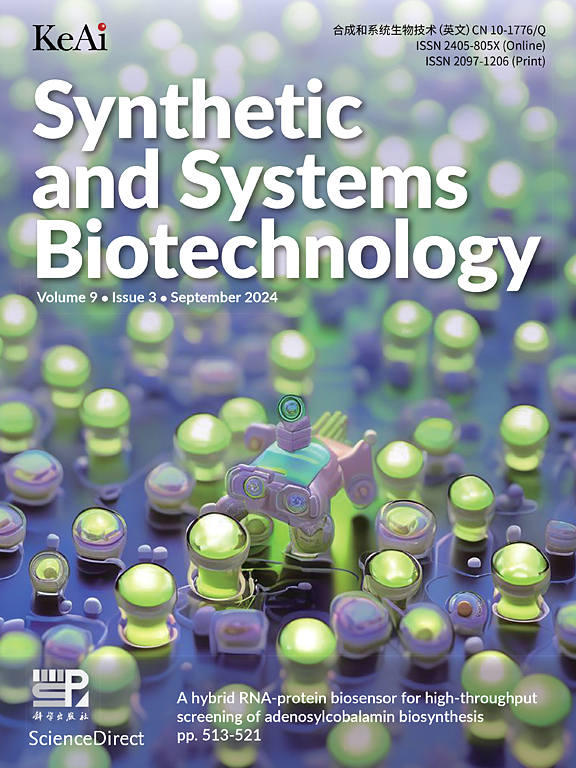High-efficiency patatin expression strategies in Komagataella phaffii (Pichia pastoris): Expression cassette toolbox and regulation of protein secretion
IF 4.4
2区 生物学
Q1 BIOTECHNOLOGY & APPLIED MICROBIOLOGY
引用次数: 0
Abstract
Patatin, a prominent food protein derived from potatoes, is renowned for its exceptional nutritional value. Patatin has been characterized for its diverse physiological attributes, including esterase activity, antioxidative properties, cholesterol-lowering effects, and high lysine content, alongside notable physicochemical traits such as foaming, emulsification, and gelation capabilities. Conventional methods for patatin extraction are fraught with inefficiencies, elevated costs, and detrimental impacts on protein structural and functional integrity. Herein, we leveraged an optimized strategy integrating an expression cassette toolbox and regulation of protein secretion to harness Komagataella phaffii as the expression host and achieved an expression level of 3.2 g per litre (g/L) in a 5-Litre bioreactor, which is the highest yield of patatin production using engineered bacteria and funguses that has been reported thus far. In this study, we innovatively refined the endogenous promoter PCAT1, and its efficacy in driving heterologous protein expression under methanol induction surpassed that of the conventional AOX1 promoter. Furthermore, crucial nodes for patatin heterologous expression in yeast were identified, substantially curtailing the production costs associated with patatin synthesis.
毕赤酵母法菲Komagataella (Pichia pastoris) patatin高效表达策略:表达盒工具箱及蛋白分泌调控
马铃薯蛋白是一种从马铃薯中提取的重要食物蛋白质,以其独特的营养价值而闻名。Patatin具有多种生理特性,包括酯酶活性、抗氧化性、降胆固醇作用和高赖氨酸含量,以及显著的理化特性,如发泡、乳化和凝胶化能力。传统的patatin提取方法效率低,成本高,并且对蛋白质结构和功能完整性有不利影响。在此,我们利用一种整合表达盒盒和蛋白质分泌调节的优化策略,利用Komagataella phaffii作为表达宿主,并在5升生物反应器中实现了3.2 g/L的表达水平,这是迄今为止报道的利用工程细菌和真菌生产patatin的最高产量。在本研究中,我们对内源性启动子PCAT1进行了创新提纯,其在甲醇诱导下驱动异源蛋白表达的效果超过了传统的AOX1启动子。此外,鉴定了酵母中patatin异源表达的关键节点,大大降低了与patatin合成相关的生产成本。
本文章由计算机程序翻译,如有差异,请以英文原文为准。
求助全文
约1分钟内获得全文
求助全文
来源期刊

Synthetic and Systems Biotechnology
BIOTECHNOLOGY & APPLIED MICROBIOLOGY-
CiteScore
6.90
自引率
12.50%
发文量
90
审稿时长
67 days
期刊介绍:
Synthetic and Systems Biotechnology aims to promote the communication of original research in synthetic and systems biology, with strong emphasis on applications towards biotechnology. This journal is a quarterly peer-reviewed journal led by Editor-in-Chief Lixin Zhang. The journal publishes high-quality research; focusing on integrative approaches to enable the understanding and design of biological systems, and research to develop the application of systems and synthetic biology to natural systems. This journal will publish Articles, Short notes, Methods, Mini Reviews, Commentary and Conference reviews.
 求助内容:
求助内容: 应助结果提醒方式:
应助结果提醒方式:


